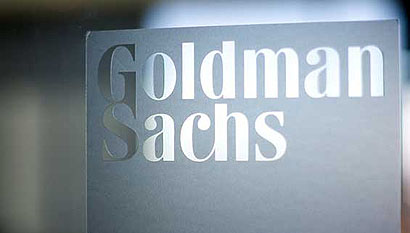Last night the New York Times put up a story about the purchase of an aluminum warehousing business by Goldman Sachs. Today, Matt Yglesias points out  that the whole thing really doesn’t make sense. Here is Goldman’s apparent business strategy:
that the whole thing really doesn’t make sense. Here is Goldman’s apparent business strategy:
- Buy Metro International, a leading aluminum warehousing firm.
- Deliberately slow down customer service so that it take 16 months to ship orders instead of six weeks.
- Charge customers extra for storage because their aluminum is lying around longer.
- Game the regulations requiring that at least 3,000 tons be moved out of storage each day by simply shuffling it between warehouses.
Needless to say, this is ridiculous. If you could make money in the warehousing business by deliberately slowing things down, a whole bunch of textbooks would have to be thoroughly rewritten. And yet, the Times seems to have the goods here. Goldman really is doing this.
But why is Goldman doing this? They can’t possibly be interested in the aluminum warehousing business per se. And they can’t possibly be interested in the small pittance they might earn in the short term by deliberately sabotaging their own company. So what’s the deal?
The Times very carefully doesn’t say. What they do say is that, thanks to the arcane rules of the aluminum spot market, the price of aluminum goes up when average storage times increase. They suggest that Goldman’s warehousing strategy is a “major reason” that the spot price of aluminum has increased dramatically since 2010.
This is obvously bad news for beer companies, but why is it good news for Goldman Sachs? The obvious answer is that, somehow, Goldman is making money by betting on the spot price of aluminum. This would be a great strategy: buy up the infrastructure for a commodity, manipulate the infrastructure to affect the spot price, and then make bets on the direction of the price. It would be a money spinning machine.
But even though this seems obvious, we don’t know that Goldman is actually doing this. Presumably Times reporter David Kocieniewski did his best to find out, but just couldn’t find a source to tell him what was going on. Nonetheless, the idiocy of allowing an investment bank to own the infrastructure of markets that it trades in should be pretty obvious, and Reuters reports this weekend that maybe the Fed is starting to understand that:
The Federal Reserve is “reviewing” a landmark 2003 decision that first allowed regulated banks to trade in physical commodity markets, it said on Friday, a move that may send new shockwaves through Wall Street.
The one-sentence statement suggests the Fed is taking a much deeper, wide-ranging look at how banks operate in commodity markets than previously believed, amid intensifying scrutiny of everything from electricity trading to metals warehouses.
While the Fed has been debating for years whether to allow banks including Morgan Stanley and JPMorgan to continue owning assets like oil storage tanks or power plants, Friday’s surprise statement suggests it is also reconsidering whether all bank holding firms should be able to trade raw materials such as gasoline tankers and coffee beans.
Between Goldman’s shady aluminum business and JPMorgan’s shady energy business, it’s about time the Fed took a fresh look at this. If they went even further, and banned big banks from trading in commodities markets at all, it would be OK with me. Rumors of commodity manipulation—and sometimes more than rumors—have been rife for years in the oil market, the water market, the energy market, and others. This is worth keeping an eye on.


















